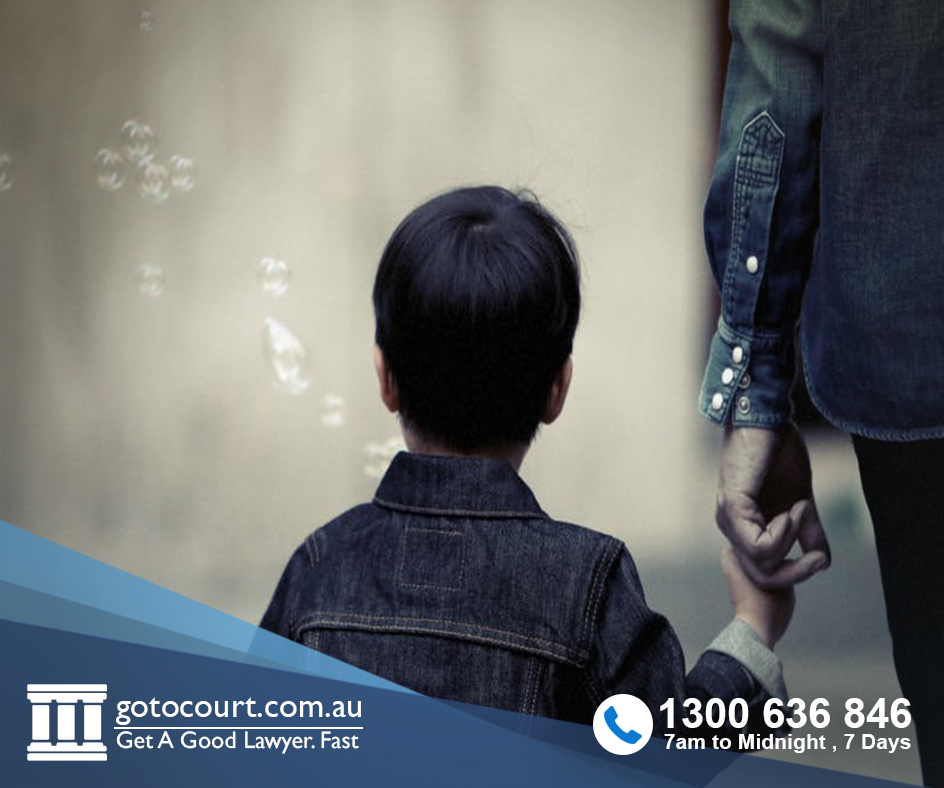Child Support: The Basics
Child Support: The Basics
Separating from a partner or spouse after a divorce or the end of a de facto relationship can be a difficult and emotional process, particularly when young children are involved. Commonwealth child support laws are designed to ensure the interests and wellbeing of the child are met while balancing the capacity of parents to support their child. It is important that you consider all of your options carefully and obtain accurate legal advice about which scenario is best for you. This page outlines the basics of the child support system in Australia.
Child support options available to you
The type of child support arrangement you enter into will depend mainly on your financial circumstances, but also on how well both parties are able to negotiate the terms of child support.
There are three child support options available:
(a) Child Support Agreement
Where both parties can agree on how much child support is to be paid and how they may sign a written agreement to that effect. The agreement is then registered with the Department of Human Services (Child Support) (DHS) (also known as the Child Support Agency), who can collect and distribute payments as per the agreement.
There are two forms of child support agreement:
- Binding agreement: this type of agreement allows you to determine the amount of support to be paid without an assessment from DHS first. Payments may by less than the amount DHS would otherwise have assessed and can be paid directly from one party to the other, without the involvement of DHS. The payments are also permitted to be paid as a lump sum. You must obtain independent legal advice before signing a binding agreement, and it can only be revoked or varied by application to the Federal Circuit and Family Court.
- Limited agreement: this type of agreement requires you to have your child support contributions assessed by DHS first. The payment amount must not be less than the amount assessed, but can be more. You are not required to obtain legal advice, and the agreement can be ended if either party wishes at the end of three years, and in some cases before three years if your circumstances change significantly.
(b) Child Support Assessment
An assessment is the most common type of child support arrangement and involves DHS assessing the contributions to be made by both parties according to a set formula, which is set out in legislation. The formula takes into account both parties’ income and the amount of time each party cares for the child and then calculates the amount each party owes to each other. DHS will then collect and distribute payments to the parties. Assessments are automatically reviewed and reassessed by DHS after a set period of time, not usually more than 15 months.
More detailed information on the formula used to calculate assessments can be obtained from the DHS website.
(c) Court Ordered Child Support
An application can be made to the Federal Circuit and Family Court for child support where the child in question is over 18 (an application for ‘child maintenance’) or where the child was born before 1 October 1989.
Who is liable to pay child support?
Both biological and adoptive parents of a child may be liable to pay child support. If you are seeking a child support assessment through DHS, you will need to prove that the other party is the parent of your child. If you are unable to do this, or if there is some dispute about paternity, then DNA testing may be required. More information about this process can be obtained from the DHS website.
Who may receive child support?
Any parent who cares for their child at least 35% of the time (‘time’ being the 12 month period from the dates the assessment commences) may apply for a child support assessment. The amount you may receive will depend on the formula referred to above. As a parent, you are not eligible to apply for child support if you continue to live with the other parent of your child on a genuine domestic basis.
Any person (a non-parent carer) who has the care of a child can claim payment from one or both parents of a child, provided that they care for the child for a minimum of 35% of the time, and are the legal guardian of the child.
Child support payments and Centrelink benefits
Child support payments are closely linked to the Family Tax Benefit Part A. If you are entitled to more than the base rate of the benefit, you must notify DHS of your intended child support arrangement within 13 weeks of separating, or otherwise risk a reduction in your payments. Your Family Tax Benefit Part A payments may be adjusted depending on the amount of child support you receive.
You are not obliged to undertake an assessment by DHS, but you should thoroughly investigate with Centrelink before you enter into a child support agreement, as your benefit payments may not strictly be calculated on the amount you have agreed to receive/pay under the agreement.
What if the other parent fails to make Child Support payments?
If the paying parent fails to make child support payments as per the registered agreement or DHS assessment, the Child Support Registrar has wide powers to obtain the payments by other administrative methods:
- Compelling the payer’s employer to make payment directly to DHS;
- Recovering the payments from social security benefits and Family Tax Benefits;
- Intercepting the payer’s tax refund.
If the Registrar is unable to secure payment through administrative means, then both the Registrar and the person owed the payments are entitled to apply for a court order to enforce the debt
Child Support and WA de-facto children
All state and territory governments, except Western Australia, have deferred the power to make laws with respect to child support for children of de-facto couples to the Commonwealth Government. These cases are referred to as ex-nuptial child support cases.
The Western Australian Government has since adopted legislation which mirrors the Commonwealth scheme, however, there remain some gaps in the scheme’s timing. If you are the parent of a child born outside of marriage, resident in WA, then you should seek legal advice regarding your child support rights and obligations.
If you require legal advice or representation in any legal matter, please contact Go To Court Lawyers.

Affordable Lawyers
Our Go To Court Lawyers will assist you in all areas of law. We specialise in providing legal advice urgently – at the time when you need it most. If you need a lawyer right now, today, we can help you – no matter where you are in Australia.How It Works




1. You speak directly to a lawyer
When you call the Go To Court Legal Hotline, you will be connected directly to a lawyer, every time.

2. Get your legal situation assessed
We determine the best way forward in your legal matter, free of charge. If you want to go ahead and book a face-to-face appointment, we will connect you with a specialist in your local area.

3. We arrange everything as needed
If you want to go ahead and book a fact-to-face appointment, we will connect you with a specialist in your local area no matter where you are and even at very short notice.















